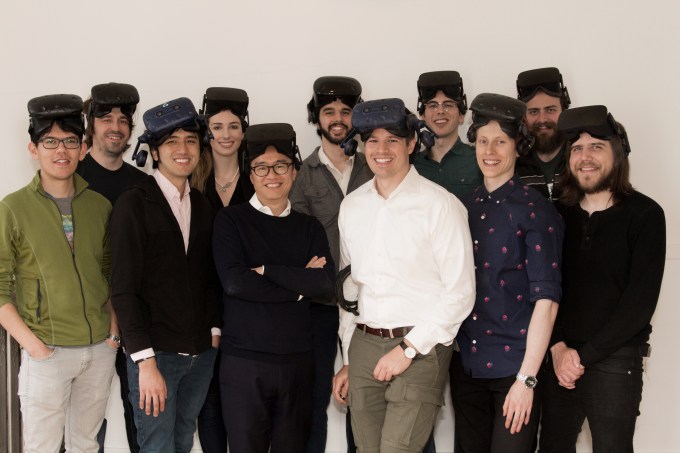Virtual reality hasn’t proven itself to be the lucrative escape of the every-man, but the medium has done a fairly good job enticing the gaming community and keeping that niche (mostly) happy. While a couple of big titles have gotten some halfway-decent ports to VR, for the most part VR users are confined to whatever indies can build or whatever Oculus can fund.
BigBox VR has been trying to capture attention in the space by not building solo adventures that lead users to find themselves, but instead by trying to match VR’s physicality and immersion with social gameplay that leads users to gain greater appreciation for the medium’s scale.
The company just closed a $5 million funding round led by Shasta Ventures with participation from GSR Ventures and Pioneer Square Labs Ventures. As part of the round, Shasta partner Jacob Mullins will be getting a seat on the board.
Venture cash for VR content hasn’t exactly been free-flowing in 2018, more so for startups that aren’t caught up in building out a “platform play.” Co-founders Chia Chin Lee and Gabe Brown are more interested in just building out titles and hopefully creating one so successful that they don’t have to stop evolving it. The team at BigBox VR got its start with a cartoonish shooter title called Smashbox Arena; the small team has been really interested in finding what VR enables when it comes to competitive online play.

The BigBox VR team
Funding rounds aren’t often about the achievements of the past; however, the company is currently going full-steam ahead with its next ambitious title, a battle royale title called “POPULATION: ONE.”
I had a chance to suit up in VR and dive-in with Jacob and the founding team. I got my ass kicked a couple times, but then they let me win at some point, which I admit I was pretty okay with.
To say the game shares some similarities with Fortnite is an understatement. Not only is it a battle royale title with a shrinking environment, but certain mechanics like gliding in at the beginning to scrounge for weapons and even Fortnite’s building feature are central to the gameplay. That being said, battle royale titles have exploded in the wake of PUBG and they seem to all share a lot among each other. For BigBox, VR is the distinguishing feature, with motion controls and the general feeling that everything is life-sized and in your control.
To be honest, a lot of it really does work. Every surface in the game is climbable (by physically grabbing surfaces with the controllers and then doing the arm-work to scale) but more central movements like turning and moving are left to buttons, a technique that ultimately isn’t for the faint of stomach but is a lot more fluid than teleporting around. There are certainly mechanics which could have felt smoother, but this is a private beta game with a lot of room to finesse.
One of the really powerful things about the game was what happened after I was repeatedly sniped and killed off early on in the first couple rounds. The spectator mode is great and it’s interesting how much the precise controls of VR lend to allowing you to get more actively enveloped in matches that you aren’t even competing in. There are companies in the VR space working exclusively on this, but for a gaming audience obsessed with streamers, adapting traditional games with a VR spectating workflow or doing so natively seems like a huge opportunity.
Battle royale games remain white-hot, and VR game studios have been trying to find the right way to get a slice of the pie. Perhaps the key is knowing where to innovate while also realizing that the multi-platform grandiose of Fortnite has yet to find its way to VR, so maybe finding a title that scratches that itch is the best place to start.